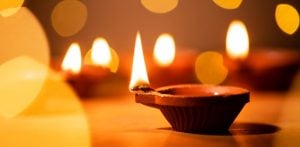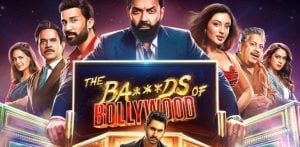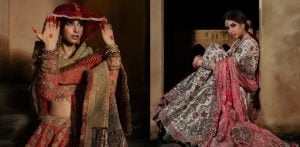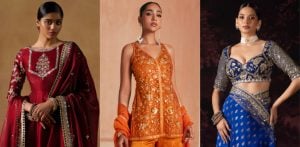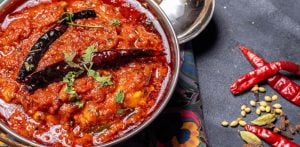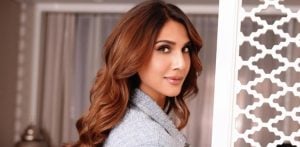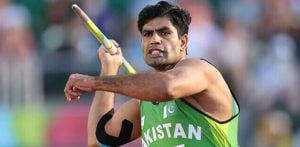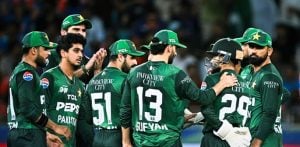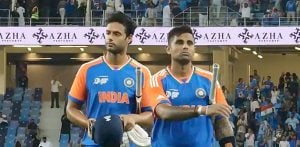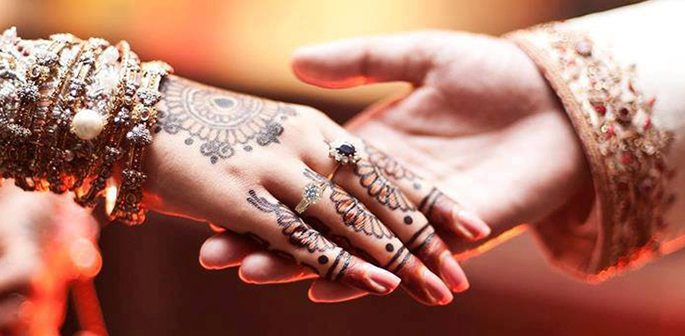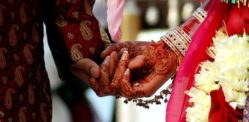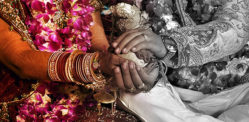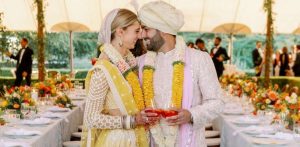"when she broke the news to her family about me, it all changed due to my caste"
Caste is still an issue even in the 21st century when it comes to marriage. Especially, in countries even outside of South Asia such as the UK, Australia and Canada.
Whilst there has been some progress where more liberal and accepting families do not let caste interfere with the happiness of their children, there are still strong factions of Asian society which will still to this day, impose marriage within caste.
Caste is an ingrained aspect of heritage and culture which originated in India, known as the Varnas, first associated with early Hinduism. But culturally, it then evolved to other countries like Pakistan, Bangladesh and Sri Lanka.
Without going into the integral details, the caste system is not a well-defined entity. It has evolved with groups of people with different origins all getting mixed over time.
The hierarchy of caste is often synonymous with the once commonly practised class system of Britain and has a strong connection with a profession or status.
However, its place in modern society is questioned by many but at the same time completely accepted by those who still fully believe in it.
Simplistically, there are three generic levels of identity when it comes to South Asians or those with Desi roots.
Firstly the country, for example, India or Pakistan, then the state or province, for example, Punjab, Gujarat or Sindh, which often relates to a dialect, and thirdly, the caste or ‘background’ as it is sometimes called.
So, within South Asian culture, caste is especially used to identify a tribe within a community. And those from within that caste have a micro culture.
One of the reasons why caste is still so prevalent is to preserve this micro culture.
So, marrying your ‘own kind’ or of your ‘background’ is then, therefore, easier defined by marrying within the caste. The theory is that this will present fewer complications in a marriage when it comes to understanding the microculture ways of a caste.
But can you control who you fall in love with? Can you decide your life and happiness on a cultural requirement?

Should you be forced by parents or grandparents to follow a cultural tradition or your own desire? Especially, if you are not living in a society, where the caste system is not prevalent.
These are some of the life challenges being faced by young people with Desi roots in the UK, Canada, US, Australia and of course, in South Asian countries.
The case of Sankar and Kausalya in March 2016, attracted great media attention. Highlighting how caste is still an issue for marriage.
Sankar a 22 year old man from the Dalit caste was hacked to death on a crowded road in Tamil Nadu, for marrying Kausalya who is from a higher caste. She was also injured in the attack.
Kausalya’s father, China Swamy, admitted to carrying out the attack in daylight and handed himself in. The family were completely against the marriage taking place due to caste differences.
There are many stories of this kind related to people having issue with caste. A lower caste wishing marrying a higher caste usually ends up in difficulty.
The more urban and city areas of India and Pakistan have progressively developed liberal views on caste but the majority of rural areas and older generations will not have it any other way.
Marriage seems to be the sticky point. There are many cases where healthy and happy pre-marital relationships end due caste.
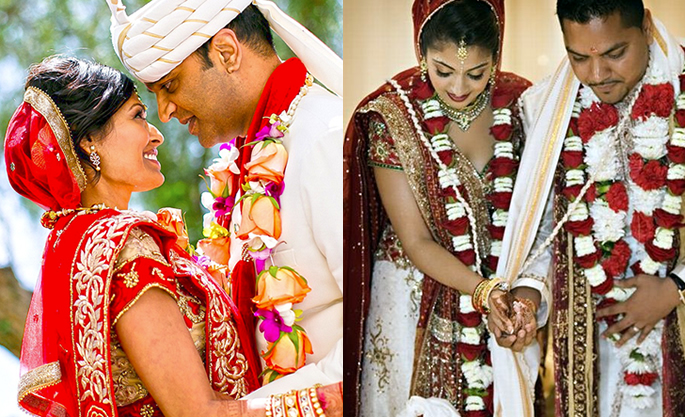
Sanjeev, 23, says:
“I had a wonderful relationship with my partner of three years, who I met at University. We clicked on all levels. But when she broke the news to her family about me, it all changed due to my caste and resulted in a breakup.”
Komal, 26, says:
“I had someone in my life that was everything to me. When we met we knew we were different castes but that didn’t stop our love growing. He was a higher caste than me but my family refused and I was given the ultimatum, him or them.”
Research conducted by the India Human Development Survey (IHDS) found that only about 5% of Indian marriages are inter-caste based with Gujarat having the highest percentage of such marriages.

In the UK, relationships between young people are much more open than the past but there are still problems when it comes to finding a marriage partner. Due to caste.
Amanpreet, 20, says:
“My parents have said feel free to find a partner of your own. But make sure he is from our Jatt caste. Finding a good person is hard enough but of the same caste too, is a massive challenge!”
Jaidev, 22, says:
“I know lots of friends who have dated girls from different castes but when it comes to marriage, they won’t disobey their parents. They will still marry who they want them to.”
Sameena, 29, says:
“I was engaged to a guy from a different caste to mine after dating him for two years. Although I was from a higher caste, his mother frequently made it hard for us by making remarks about me and my caste. This eventually resulted in the engagement ending.”
To demonstrate how caste is still an attribute when it comes to marriage, many matrimonial and dating websites stipulate caste as a selection. For example, on Shaadi.com it is labelled as a ‘sub-community’.
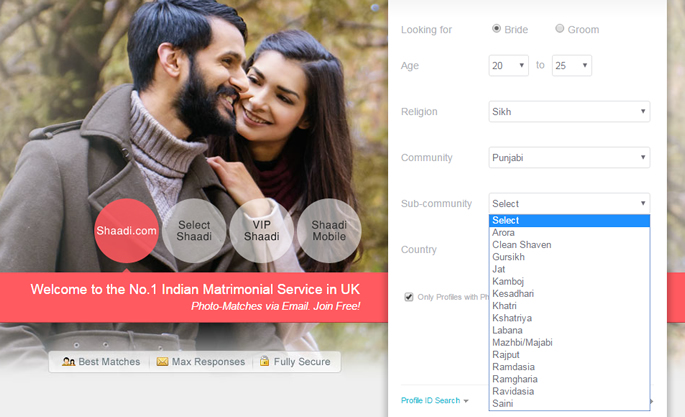
Those who do marry out of caste do find it a challenge when it comes to family and relatives.
Sunita, 31, says:
“I got married to the love of my life, five years ago. We have a great relationship because we are open with each other despite the awkwardness and negative comments we’ve experienced from family and friends too.”
Maninder, 23, says:
“I met my wife at university. She was of a lower caste. From day one it never bothered me what she was but my grandparents were not happy at all. This caused issues for my parents but they stood by me. Now they accept her fully.”
With more and more young people dating, they are realising the stereotypes about caste are not true either.
Lower caste people are supposed to be uncultured, uncouth, less educated and of a lower status. Not what Shohbana, 25, found:
“I’ve dated a couple of guys from the “lower caste” and what always mattered to us was compatibility, level of education and the usual parameters of any healthy relationship. In both the cases I had the company of well mannered, highly educated, thorough gentlemen with very strong human values.”
Rahul, 27, says:
“I use to get told I must stay away from lower caste people and they were labelled as ‘outsiders’. But when I went to study abroad, I befriended a lower caste girl. She was the best thing that ever happened to me. What an amazing human being.”
Caste and marriage are definitely two entities that have a long way to go before they become one naturally.
As new generations break down myths, accepting people for who they are than what they are, change can happen, increasing the acceptance of inter-caste marriages.
But it is pretty clear that caste is not something that is going to be ‘given’ up easily by those who still believe in all aspects of it fully.
Those that wish to continue to live their lives and future generations by the values of their caste, they will want to defend their micro culture, especially when it comes to marriage.








